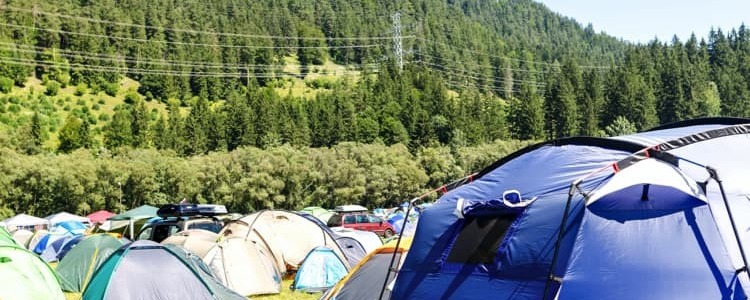Tips to keep your family safe this summer
Posted on 4th August 2022
During the summer holidays a family camping trip might be ideal. However, it’s important to know how to stay safe around high voltage electricity while you’re getting closer to nature.
With overseas travel disruption expected in airports, on trains and roads, a ‘staycation’ might be an attractive alternative this summer. However, outdoor activities like camping and flying kites can expose your family to electrical risks.
The simple advice is to look out and look up.
Parents should take time to identify electrical substations and other nearby electrical installations and make sure children know that they are out of bounds as play areas. Children should also be told they should never climb over fences to get into these sites if balls, frisbees or kites fall in to them.
Avoid the risks of overhead power lines
Overhead power lines can carry up to 400,000volts and even touching the lowest voltage cables could kill someone.
To stay safe:
avoid pitching tents or parking caravans directly under or close to an overhead power line
don’t fly kites or drones near overhead lines
if you’re fishing using long carbon fibre fishing poles always check for overhead power lines before you begin and carry your poles parallel with the ground when you’re moving around
don’t enter an electricity substation site for any reason
campers should not attach anything to electricity poles, pylons or other electrical equipment and fires should not be lit close to overhead lines which could sag or break when exposed to heat
be careful where you put up gazebos or small marquees for outdoor events and make sure they are well away from overhead cables.
Summer safety at home
Every year around 70 people die and over 350,000 are seriously injured by electrical accidents at home.

Gardens – mowers and other electrical equipment are useful to keep your garden looking at its best during the summer, but you might also need to do some watering in the warm weather and your children might enjoy some watery games. If the ground or your plants are wet there’s an increased risk of a shock from your electric garden equipment.
To help keep you safe, use a Residual Current Device (RCD) with your outdoor electrical equipment. Plug-in RCDs aren’t too expensive and they could save a life. When you’re using electric equipment outdoors always keep an eye on the cables so you don’t run over them when you’re mowing for example.
Before cleaning, adjusting or checking your outdoor electrical equipment make sure it is switched off and unplugged. When you aren’t using your electrical garden tools store them in a dry, safe place and check for damage before using for the first time.
If you’re planning some outdoor lighting so you can enjoy the warm evenings make sure it’s suitable for outdoor use and have outdoor sockets and wiring installed or checked by a qualified electrician.
DIY – if you have plans for a summer DIY project you should be aware that electricians say about a third of the electric shocks they see are caused by badly completed home installations and that more than one in 10 had caused an electrical fire.
To avoid DIY accidents, make sure you know where the electric cables are in your home using a cable detector before starting work. Check that your consumer unit (fuse box) has an RCD and use plug-in RCDs with your electric tools if necessary. Where possible turn off the power if you’re working near electrical wiring.
Staying cool – on very hot days you might want to keep cool with an electric fan but remember they can overheat if they’re used for a long time. Make sure you buy your fan from a recognised supplier and follow the instructions. Regularly check the plug and socket you’re using and if they are warm to touch or there’s buzzing or crackling switch of the fan and socket and unplug the fan straight away. If a fuse in your consumer unit trips more than once this is a warning sign and you should contact an electrician.
Please get in touch if you need extra sockets indoors or outdoors or you would like to install new outside lighting.
Tagged as: Electrical safety
Share this post:





